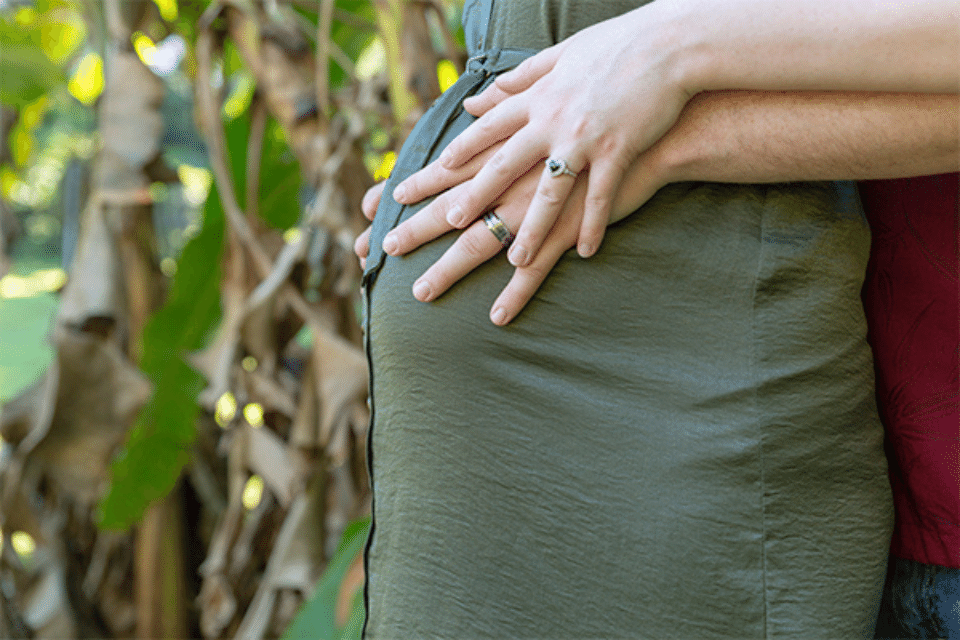IBD and IBS during pregnancy may seem like touchy topics, however, they don’t have to be! Pregnancy alone can cause a symptom like bloating, constipation or diarrhea in many women. In a pregnant patient with Irritable Bowel Disease or Irritable Bowel Syndrome, these symptoms are multiplied and there are some other issues to be aware of.
While a symptom like diarrhea may be difficult to manage, pregnant women with ulcerative colitis or Crohn’s also have a higher rate of preterm delivery as well as babies that are low birth weight if their colitis is active. About a third of moms-to-be stay in remission during pregnancy, a third can relapse during pregnancy, and a third improve during pregnancy. But the two main goals for a pregnant patient with IBS or IBD are getting the colitis under control before conceiving and maintaining remission during the pregnancy.
#1: Communication between doctors and pregnant women is key!
Having a high-risk obstetrician who works with your gastroenterologist is very important when discussing medications such as biologics that are safe to take during pregnancy, as well as dietary factors that will help keep IBD and IBS to a minimum. If you need help finding the right high-risk obstetrician, I recommend finding an academic tertiary care center where you have access to a whole team of radiologists and neonatal specialists. In the greater New York City area, there are two excellent options: Columbia Presbyterian Division of Maternal-Fetal Medicine and the Mount Sinai High-Risk Maternal-Fetal Medicine division.
#2: Ulcerative colitis, Crohn’s, IBS, and pregnancy: what the heck do I eat?
Getting the right balance of nutrients during pregnancy is paramount to a healthy mother and child, especially in the setting of a pregnant patient having ulcerative colitis or IBS. Following a low FODMAP diet can help ease GI symptoms like bloating, constipation, and stomach pain, but it’s essential to eat iron-rich, high-fat, low FODMAP foods, particularly in the first trimester. For example, some people with ulcerative colitis have trouble eating folic acid-rich whole grains and breads which would need to be swapped out for other folic acid-rich foods, like rice and quinoa, which are gluten-free and don’t contain FODMAPs. Folic acid is necessary during pregnancy for preventing spina bifida and other neural tube birth defects. It is also doctor recommended to eat more fish during pregnancy because it’s high in inflammation-reducing omega 3 fatty acids which are especially beneficial to pregnant mothers with ulcerative colitis and IBS. Just stick to low-mercury fish such as salmon, canned tuna, shrimp, and pollock and avoid high-mercury varieties such as swordfish and king mackerel. Finally, don’t forget your pregnancy supplements; prenatal vitamins can help to replace nutrients you may not be getting from your diet or that you’re losing through diarrhea. Vitamin D, calcium, potassium, and magnesium deficiencies are common in people with ulcerative colitis or severe IBS. Epicured’s Get More Guide is a helpful resource.
#3 What are the chances that my child will have ulcerative colitis, Crohn’s, or IBS?
Ulcerative colitis, Crohn’s, and IBS can run in families — especially amongst parents and siblings. Around 10-25 percent of people with IBD or IBS have a parent or sibling with IBD or IBS. When ulcerative colitis affects multiple family members, flare-ups tend to start at an early age. What sets off the genes is part of the puzzle. Possible triggers include infections such as viruses or bacteria like salmonella or e.coli, vitamin D deficiency, NSAIDs use, or even a lack of exposure to bacteria or germs in childhood, preventing the immune system from developing normally. The most important advice a pediatrician can give you as a new mom with IBD or IBS is to closely watch your child and to look out for failure to thrive, iron deficiency, or altered bowel habits like constipation or diarrhea. If you see any of these signs, let your pediatrician or pediatric gastroenterologist know right away!
VIDEO BONUS. Dr. Freeman discusses managing IBS during each trimester.


